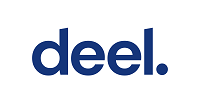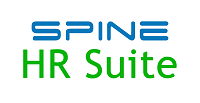Description

Deel

Payroo Payroll
Comprehensive Overview: Deel vs Payroo Payroll
Deel and Payroo Payroll Overview
Deel
a) Primary Functions and Target Markets:
-
Primary Functions: Deel is primarily a global payroll and compliance platform designed to facilitate international hiring. The platform helps businesses hire remote employees or contractors legally in over 150 countries. Key functions include international payroll, compliance support, contract management, benefits administration, and support for various currencies and payment methods.
-
Target Markets: Deel targets startups, SMEs, and large enterprises that operate internationally or are considering expanding their workforce globally. It is particularly favored by technology companies, digital nomads, and any business looking to tap into the global talent pool.
b) Market Share and User Base:
- Deel has rapidly grown due to the increasing demand for remote work solutions, especially during and post-COVID-19 pandemic. While specific market share data might fluctuate, Deel is well-regarded in the international payroll services niche and continues to expand its customer base, appealing to companies that need scalable and compliant international hiring solutions.
c) Key Differentiating Factors:
- Strength in handling international compliance and payroll complexities.
- Support for remote work ecosystems through flexible payment options, including cryptocurrencies.
- User-friendly platform with a modern interface designed for ease of use.
- Strong focus on legal and compliance assistance for global hiring.
Payroo Payroll
a) Primary Functions and Target Markets:
-
Primary Functions: Payroo Payroll is a cloud-based payroll service focused more on traditional payroll processing functions. The software offers tools for processing payroll, managing employee records, compliance with local tax requirements, and generating reports. It also includes features for real-time information submissions (RTI) critical for UK payroll systems.
-
Target Markets: Payroo Payroll primarily targets small and medium-sized enterprises (SMEs), predominantly in the UK. It caters to businesses seeking reliable and straightforward payroll solutions without the need for extensive international features.
b) Market Share and User Base:
- Although Payroo may not have the same global footprint as Deel, it maintains a consistent presence within the UK market. Its user base mainly consists of SMEs that prioritize cost-effective and compliant payroll processing within the UK.
c) Key Differentiating Factors:
- Focus on UK-based payroll functions with compliance to HMRC regulations.
- Emphasizes cost-effectiveness for smaller businesses that require basic payroll processing.
- Long-standing presence in the UK market, trusted for its straightforwardness and reliability in handling domestic payroll.
Summary and Comparison
- International vs. Local Focus: Deel is designed for companies with international payroll and compliance needs, whereas Payroo focuses on UK-based payroll processing.
- Feature Set: Deel offers a wider range of features for international operations, such as multi-currency support and international compliance, while Payroo provides essential payroll services suited for smaller, domestic businesses.
- Market Dynamics: Deel has leveraged recent trends in remote work to expand its reach globally, whereas Payroo caters to a niche of domestic UK businesses with simpler payroll needs.
Overall, the choice between Deel and Payroo Payroll will depend on a company's scale, geographic footprint, and specific payroll needs. Businesses seeking comprehensive, international solutions might prefer Deel, whereas those focused within the UK market might opt for the cost-effective services of Payroo Payroll.
Contact Info

Year founded :
2021
Not Available
Not Available
United States
Not Available

Year founded :
Not Available
Not Available
Not Available
Not Available
Not Available
Feature Similarity Breakdown: Deel, Payroo Payroll
To analyze the feature similarity breakdown between Deel and Payroo Payroll, we consider their functionalities, user interfaces, and distinctive features.
a) Core Features in Common
-
Payroll Management: Both platforms handle payroll processing, ensuring employees are paid accurately and on time. They manage calculations related to taxes and deductions.
-
Compliance: Deel and Payroo offer compliance support for different tax jurisdictions, helping businesses adhere to regulatory requirements based on where their employees are located.
-
Employee Self-Service: They provide features that allow employees to access their pay slips, tax documents, and other related information through a self-service portal.
-
Automated Tax Calculation: Automatic calculation of taxes and national insurance contributions is a feature present in both, streamlining the payroll process.
-
Integration Capabilities: Both Deel and Payroo are designed to integrate with other HR tools and systems, providing a seamless experience for businesses that need to manage multiple systems.
b) User Interface Comparison
-
Deel: Deel's interface is known for its modern, intuitive design that emphasizes ease of use and accessibility. The platform is built with remote and global teams in mind, providing a clean dashboard to manage payroll across different countries efficiently.
-
Payroo Payroll: Payroo’s interface tends to be more straightforward and functional, which can appeal to users who prefer simplicity over an abundance of features. It focuses on providing a no-frills experience to get payroll tasks done without unnecessary complexity.
Overall, Deel might offer a more visually appealing and easy-to-navigate interface compared to the more utilitarian design of Payroo.
c) Unique Features
-
Deel:
- Global Payroll and HR Compliance: Deel has a strong focus on managing global payroll, offering specialized features for compliance and tax management across multiple countries, which is particularly advantageous for companies with international teams.
- Contractor Management: Deel includes specific features for managing contractors, such as customizable contracts and localized legal compliance assistance.
- Custom Compensation: Advanced customization options for varying compensation structures, including equity, bonuses, and benefits.
-
Payroo Payroll:
- Focus on UK Market: Payroo is tailored towards the UK market, providing efficient handling of UK-specific tax reporting and compliance.
- Real Time Information (RTI): Payroo is optimized for UK’s HMRC Real Time Information system, ensuring accurate and timely reporting to meet local requirements.
- Free Tier Offering: Payroo offers a free tier, which can be attractive for small businesses or startups looking for basic payroll services in the UK.
In conclusion, while Deel and Payroo Payroll share core payroll features, their unique offerings and interface designs cater to different business needs—Deel excels in global payroll management with a modern UI, whereas Payroo focuses on UK-centric features with a straightforward interface.
Features

Not Available

Not Available
Best Fit Use Cases: Deel, Payroo Payroll
Deel
a) Best Fit Use Cases for Deel:
-
Global Expansion and Remote Teams:
- Business Types: Ideal for companies looking to expand internationally or operate with a globally distributed workforce. Tech companies, consultancies, and startups that employ talent from multiple countries often use Deel.
- Project Types: Suitable for projects that require hiring contractors or full-time employees across different jurisdictions.
-
Compliance Management:
- Companies that need support with local labor laws, tax regulations, and compliance in multiple countries can benefit significantly from Deel’s expertise.
-
Flexible Workforce Solutions:
- Businesses or projects that rely heavily on contractors or freelancers will find Deel’s contractor management features useful.
-
Rapid Onboarding:
- Startups and fast-growing companies that need to hire quickly without setting up local entities can leverage Deel’s quick onboarding process.
d) Industry Verticals and Company Sizes:
- Tech and IT Services: Where remote work is prevalent and the need for specialized talent is high.
- Startups and SMEs: Looking for cost-effective ways to manage a global workforce without establishing foreign subsidiaries.
- Consultancy Firms: That operate across multiple regions and need diverse skills and expertise.
Payroo Payroll
b) Preferred Use Cases for Payroo Payroll:
-
Small and Medium Enterprises (SMEs) in the UK:
- Business Types: Best suited for UK-based SMEs that require straightforward payroll processing solutions.
- Scenarios: When a company needs a cost-effective and simple payroll solution that complies with UK payroll regulations.
-
Compliance with UK Payroll Regulations:
- Companies that need robust compliance features for UK-specific payroll taxes, National Insurance, pensions, and HMRC submissions.
-
In-House Payroll Management:
- Ideal for businesses that wish to manage payroll internally rather than outsourcing it, offering tools that make this feasible for smaller teams.
-
Basic Payroll Needs:
- Projects where the payroll needs are straightforward, without the complexity of multiple currencies or global regulations.
d) Industry Verticals and Company Sizes:
- Local Service Providers: Such as smaller retail businesses, restaurants, and service industries operating within the UK.
- Traditional Industries: Like manufacturing or logistics in the UK, where the employee base is primarily domestic.
- Non-profits and Charities: Often smaller in size and require budget-friendly solutions with reliable compliance for the UK.
Conclusion
Deel and Payroo Payroll cater to different sets of needs. Deel specializes in cross-border employment solutions, making it ideal for dynamic, internationally focused companies looking for compliance and flexibility in their workforce management. Conversely, Payroo is a simpler, cost-effective solution addressing the needs of UK SMEs that focus on compliance within the UK payroll landscape. Each platform serves its target audience by aligning with industry demands and operational scales effectively.
Pricing

Pricing Not Available

Pricing Not Available
Metrics History
Metrics History
Comparing undefined across companies
Conclusion & Final Verdict: Deel vs Payroo Payroll
When evaluating Deel and Payroo Payroll to determine which product offers the best overall value, several factors must be considered, including pricing, features, user experience, customer support, and scalability.
Conclusion and Final Verdict
a) Best Overall Value
In considering all factors, Deel typically offers the best overall value, especially for businesses that require comprehensive global payroll solutions and flexibility in managing a diverse international workforce. Deel's emphasis on global compliance, contractor management, and automated processes caters well to companies with remote and international employees.
b) Pros and Cons
Deel:
- Pros:
- Global Reach: Extensive support for international payroll and contractor management.
- Compliance Assurance: Strong focus on ensuring legal compliance in multiple jurisdictions, which is critical for global businesses.
- User-Friendly Interface: Intuitive platform with streamlined processes for onboarding and payment.
- Scalability: Ideal for rapidly growing companies planning to expand into new markets.
- Cons:
- Pricing: May be more expensive compared to localized payroll solutions if only domestic services are needed.
- Complexity: Smaller companies with no global employees might find its comprehensive features excessive.
Payroo Payroll:
- Pros:
- Affordability: Generally more cost-effective for small to medium-sized enterprises with straightforward payroll needs.
- Local Expertise: Deep integration with UK payroll regulations, making it particularly suitable for businesses operating solely in the UK.
- Simplicity: Streamlined payroll functions that are easy to manage for domestic operations.
- Cons:
- Limited Global Features: Not as robust in handling international payroll needs.
- Scalability: May lack advanced features and flexibility for companies planning international expansion.
c) Recommendations
-
For Companies with International Workforce Needs: Choose Deel for its comprehensive global payroll features, compliance support, and ability to manage contractors across different jurisdictions. Its platform is ideal for businesses with growth ambitions beyond their home country.
-
For Small to Medium UK-Based Businesses: Opt for Payroo Payroll if the focus is on affordability and ease of use within the UK. For companies with straightforward payroll requirements that operate domestically, Payroo offers a cost-effective and efficient solution.
-
Mixed Workforce and Long-Term Growth: Consider starting with Payroo Payroll for immediate needs, but plan for a transition to Deel as your company grows and internationalization becomes a strategic focus.
In conclusion, the decision between Deel and Payroo Payroll should be primarily guided by your specific business needs, the scale of your workforce, geographical considerations, and long-term strategic goals. If global operations and compliance are crucial, Deel is the better choice. For localized UK-focused operations, Payroo provides a pragmatic solution.
Add to compare
Add similar companies



